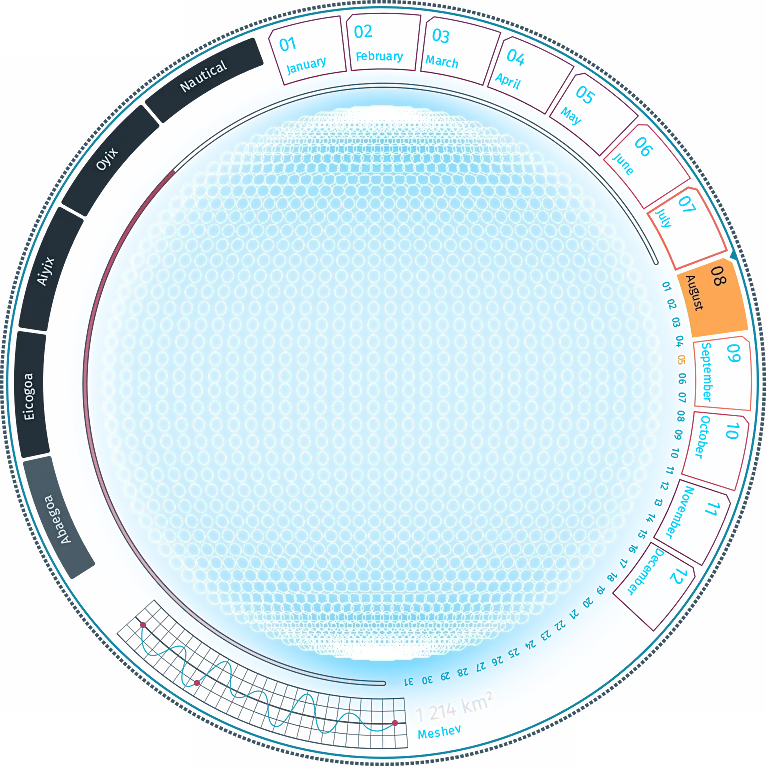Pyrlish (pyːrlɪʃ)
...and he stood holding his hat and turned his wet face to the wind...
iv vols kram färi ma bås iv kvukt gri kram fjä burg e
Pronunciation: /ɪv vuːls kram ˈfɛrɪ ma boːs ɪv kvʉːkt grɪ kram fjɛː bʉːrj eː/
Pyrlish word order: and he his hat holding stood and the wind to his wet face turned
iv vols kram färi ma bås iv kvukt gri kram fjä burg e
Pronunciation: /ɪv vuːls kram ˈfɛrɪ ma boːs ɪv kvʉːkt grɪ kram fjɛː bʉːrj eː/
Pyrlish word order: and he his hat holding stood and the wind to his wet face turned
Spelling & Phonology
Syllable structure: Custom defined
Stress pattern: Penultimate — stress is on the second last syllable
Stress pattern: Penultimate — stress is on the second last syllable
Co-articulated phonemes
| ↓Manner/Place→ | Sj-sound |
|---|---|
| Fricative | ɧ |
Vowel inventory: a eː iː oː uː yː øː œ ɑː ɔ ɛ ɛː ɪ ɵ ʉː ʊ ʏ
| Front | Central | Back | |
|---|---|---|---|
| High | iː yː | ʉː | uː |
| Near-high | ɪ ʏ | ʊ | |
| High-mid | eː øː | ɵ | oː |
| Low-mid | ɛ ɛː œ | ɔ | |
| Low | a | ɑː |
Consonant inventory: b d f g h j k l m n p r s t v ŋ ɕ ɖ ɧ ʂ
| ↓Manner/Place→ | Bilabial | Labiodental | Alveolar | Retroflex | Alveolo-palatal | Palatal | Velar | Glottal |
|---|---|---|---|---|---|---|---|---|
| Nasal | m | n | ŋ | |||||
| Stop | p b | t d | ɖ | k g | ||||
| Fricative | f v | s | ʂ | ɕ | h | |||
| Approximant | j | |||||||
| Trill | r | |||||||
| Lateral approximant | l |
Spelling rules
| Pronunciation | Spelling |
|---|---|
| ɛː | ä |
| ɛ | ä |
| øː | ö |
| œ | ö |
| oː | å |
| ɔ | o |
| yː | y |
| ʏ | y |
| ʉː | u |
| ɵ | u |
| ʊ | o |
| uː | o |
| iː | i |
| ɪ | i |
| eː | e |
| ɑː | a |
| ŋn | gn |
| ŋ | ng |
| j | g / _# |
| ɧ | sj |
| kk | ck |
| ɕ | k |
| C₁C₁ | C₁ / _j |
Grammar
Main word order: Subject (Prepositional phrase) Object Verb. “Alrik opened the door with a key” turns into Alrik with a key the door opened.Adjective order: Adjectives are positioned before the noun.
Adposition: postpositions
Nouns
Nouns have two cases:- Nominative is the doer of a verb: dog bites man.
- Accusative is the done-to of a verb: man bites dog.
| Plural | Particle before the noun: dyːm - dym öm /dyːm øːm/ dogs |
| Nominative | No affix öm /øːm/ dog (doing the verb) |
| Accusative | Suffix -ʉː ömu /ˈøːmʉː/ (verb done to) dog |
Articles
Uses of definite article that differ from English:- Definite article can be omitted: ‘I am going to supermarket’
- Used to talk about countable nouns in general: English’s ‘I like cats’ would translate to ‘I like the cats’
- Not used for non-specific mass (uncountable) nouns: non-specific means ‘Would you like some (any) tea?’ whereas specific means ‘Some tea (a specific amount) fell off the truck’
| Definite | bre /breː/ the |
| Indefinite | o /uː/ a, some |
Pronouns
| Nominative | Accusative | |
|---|---|---|
| 1st singular | tangs /taŋs/ I | mä /mɛ/ me |
| 2nd singular | kong /kuːŋ/ you | kva /kvɑː/ you |
| 3rd singular masc | vols /vuːls/ he, it | jyd /jyːd/ him, it |
| 3rd singular fem | dåg /doːg/ she, it | vo /vɔ/ her, it |
| 1st plural | so /suː/ we | mi /mɪ/ us |
| 2nd plural | fu /fɵ/ you all | drä /drɛ/ you all |
| 3rd plural | fjår /fjoːr/ they | tri /triː/ them |
Possessive determiners
| 1st singular | se /seː/ my |
| 2nd singular | mack /makk/ your |
| 3rd singular masc | kram /kram/ his |
| 3rd singular fem | a /a/ her |
| 1st plural | o /uː/ our |
| 2nd plural | våt /voːt/ your (pl) |
| 3rd plural | bjo /bjɔ/ their |
Verbs
| Present | Past | Remote past | |
|---|---|---|---|
| 1st singular | If ends with vowel: Suffix -tt Else: Suffix -att darnatt /ˈdarnatt/ (I) learn | Suffix -ʏŋkt darnyngkt /ˈdarnʏŋkt/ (I) learned | If ends with vowel: Suffix -rmt Else: Suffix -ʊrmt darnormt /ˈdarnʊrmt/ (I) learned (long ago) |
| 2nd singular | Suffix -ad darnad /ˈdarnad/ (you) learn | If ends with vowel: Suffix -tt Else: Suffix -uːtt darnott /ˈdarnuːtt/ (you) learned | If ends with vowel: Suffix -lljoː Else: Suffix -uːlljoː darnoljå /darˈnuːlljoː/ (you) learned (long ago) |
| 3rd singular | If ends with vowel: Suffix -kk Else: Suffix -ʊkk darnock /ˈdarnʊkk/ (he/she/it) learns | Suffix -ɔ darno /ˈdarnɔ/ (he/she/it) learned | If ends with vowel: Suffix -n Else: Suffix -an darnan /ˈdarnan/ (he/she/it) learned (long ago) |
| 1st plural | Suffix -aŋn darnagn /ˈdarnaŋn/ (we) learn | Suffix -iːnd darnind /ˈdarniːnd/ (we) learned | If ends with vowel: Suffix -mtɑː Else: Suffix -yːmtɑː darnymta /darˈnyːmtɑː/ (we) learned (long ago) |
| 2nd plural | If ends with vowel: Suffix -l Else: Suffix -ɪl darnil /ˈdarnɪl/ (you all) learn | Suffix -a darna /ˈdarna/ (you all) learned | If ends with vowel: Suffix -lp Else: Suffix -ɪlp darnilp /ˈdarnɪlp/ (you all) learned (long ago) |
| 3rd plural | If ends with vowel: Suffix -nsk Else: Suffix -ɑːnsk darnansk /ˈdarnɑːnsk/ (they) learn | Suffix -eːn darnen /ˈdarneːn/ (they) learned | If ends with vowel: Suffix -st Else: Suffix -ʊst darnost /ˈdarnʊst/ (they) learned (long ago) |
| Future | Particle before the verb: spɪmn - spimn darn /spɪmn darn/ will learn |
Perfect aspect
The perfect aspect in English is exemplified in ‘I have read this book’, which expresses an event that took place before the time spoken but which has an effect on or is in some way still relevant to the present. Pyrlish uses the word for ‘finish’ skuangs for the perfect aspect.Derivational morphology
| Adjective → adverb = If ends with vowel: Suffix -ŋs Else: Suffix -ʉːŋs |
| Adjective → noun (the quality of being [adj]) = If ends with vowel: Suffix -n Else: Suffix -yːn |
| Adjective → verb (to make something [adj]) = If ends with vowel: Suffix -t Else: Suffix -ɔt |
| Noun → adjective (having the quality of [noun]) = If ends with vowel: Suffix -m Else: Suffix -ɛm |
| Noun → adjective relating to noun (e.g. economy → economic) = Suffix -œsst |
| Noun to verb = Suffix -ʊ |
| Verb → adjective (result of doing [verb]) = If ends with vowel: Suffix -g Else: Suffix -ɔg |
| Tending to = If ends with vowel: Suffix -ŋ Else: Suffix -ɛːŋ |
| Verb → noun (the act of [verb]) = Suffix -ɑː |
| Verb → noun that verb produces (e.g. know → knowledge) = Suffix -ɑːgs |
| One who [verb]s (e.g. paint → painter) = Suffix -uː |
| Place of (e.g. wine → winery) = If ends with vowel: Suffix -r Else: Suffix -ar |
| Diminutive = If ends with vowel: Suffix -d Else: Suffix -ʉːd |
| Augmentative = Suffix -ɪrs |
Numbers
| 1 | så |
| 2 | frä |
| 3 | a |
| 4 | gåjkä |
| 5 | hi |
| 6 | lidi |
| 7 | såv |
| 8 | mösdy |
| 9 | ju |
| 10 | ko |
| Hundred | de |
| Thousand | gräl |
Dictionary
Spoken by
Common Phrases


Comments